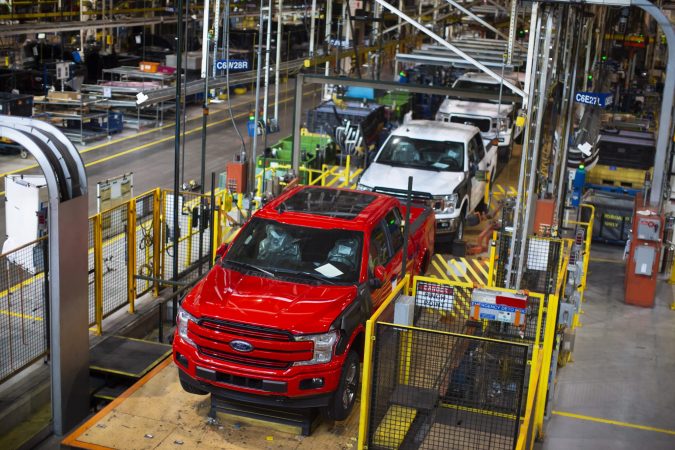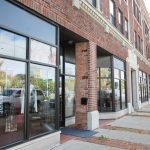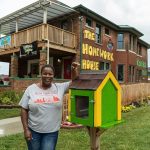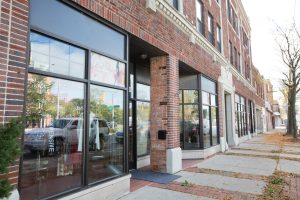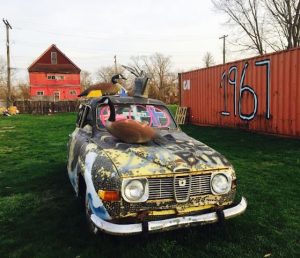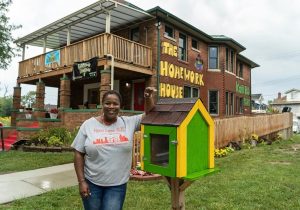For the first time in two months, Julie Classen reported to work last Monday. The automotive veteran was one of the first workers to head back to the Michigan Assembly Plant as Ford began the challenging job of relaunching the sprawling U.S. production network it shuttered in March due to worries about the spreading coronavirus pandemic.
Like other line workers, Classen has to learn the new way of doing things as part of a lengthy “playbook” Ford put together during the downtime, something Chief Operating Officer Jim Farley calls “a benchmark,” adding “I completely trust the process we have come up with.”
Like Classen and the rest of its workforce, Ford is itself having to learn to do things differently, as the pandemic has impacted pretty much everything about the car business, from the way new products are being designed and engineered to the way vehicles are marketed and sold. And the reality is that many of those changes are likely to be long-term, if not permanent.
GETTING BACK TO WORK, SAFELY
Getting its network of parts and assembly plants up-and-running was a key priority for Ford, as might be expected. As the country started facing the dangers of the coronavirus crisis in mid-March, it seemed like the carmaker might have been able to weather an extended shutdown. But U.S. auto sales didn’t tumble nearly as much as expected and the solid, ongoing demand for full-size pickups, especially the Ford F-150, helped prop up the market. But now, inventories are getting thin and it’s time to start things rolling again.
“I was so very ready to go back to work,” said Classen, “but there were so many new things to learn.”
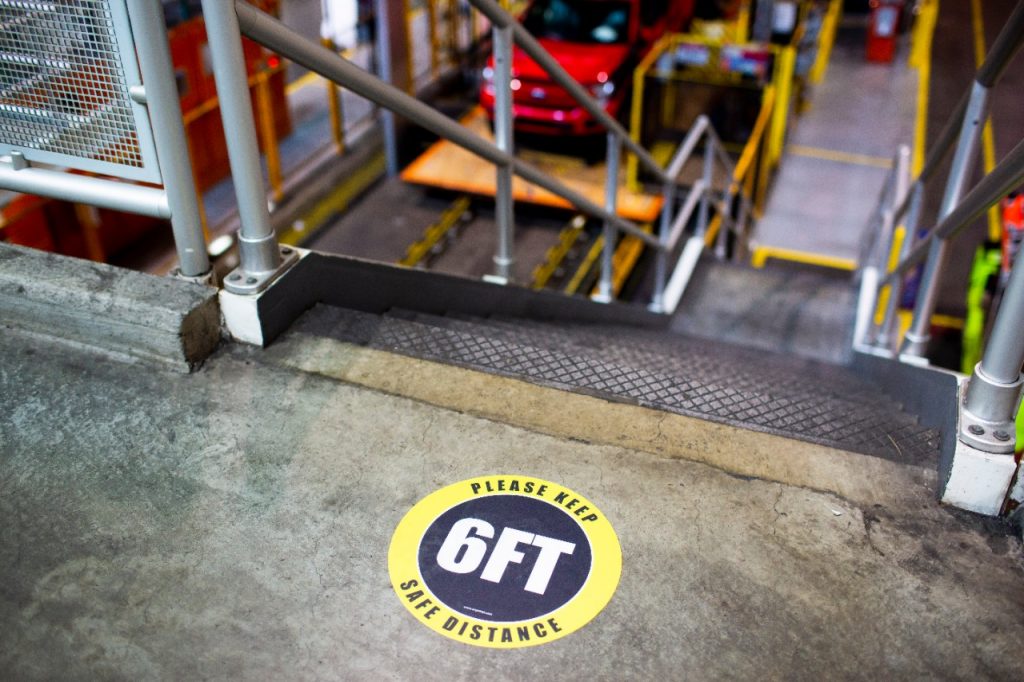
FORD ROBUST SAFETY AND CARE MEASURES HAVE BEEN IMPLEMENTED GLOBALLY TO SUPPORT A SAFE AND HEALTHY WORK ENVIRONMENT. PHOTO FORD
As much as Ford wants to get product rolling out of its plants, the first part of the process was to make sure workers would be safe when they walk in, said Gary Johnson, Ford’s chief manufacturing and labor officer, noting that “the first part of the process is self-validation.” Even before they get to work each day, Ford’s U.S. employees must update a special app designed to make sure they’re not exhibiting any possible symptoms of COVID-19, the disease caused by the coronavirus. When they get to the main gate, they have temperatures taken and are given masks and other personal protective gear.
Inside, each plant has gone through a number of changes, starting with common areas, cafeterias are closed, but seating in them is redesigned to ensure social distancing. Even on the line itself, work stations have been revised, where possible, to put more distance between workers. Where that isn’t possible, they’re given extra safety gear, including safety glasses with side shields.
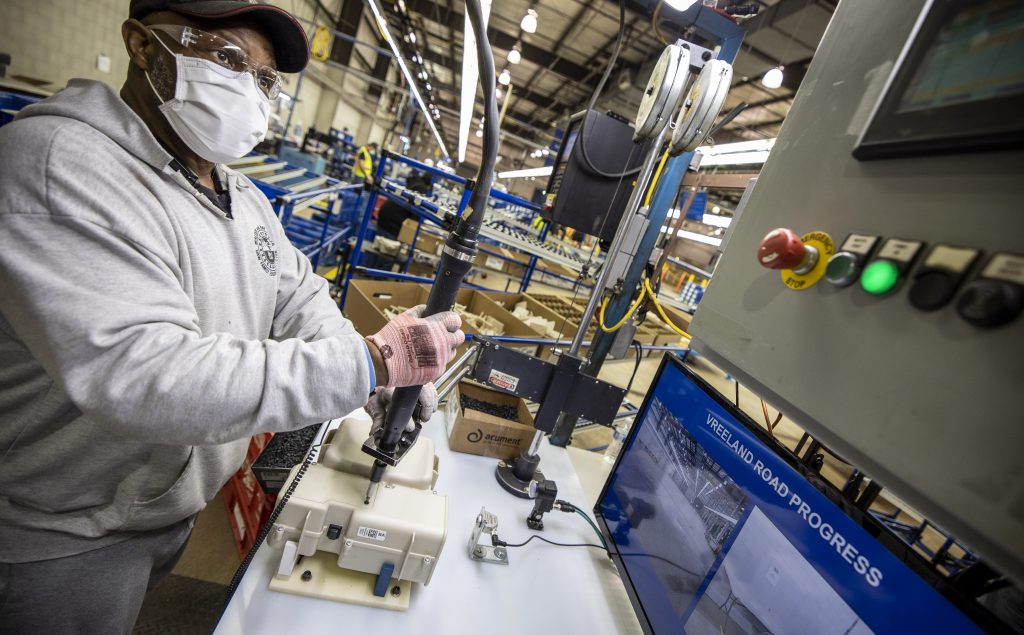
CORONAVIRUS SAFETY ACTIONS INCLUDE REQUIRED FACE MASKS FOR EVERYONE ENTERING A FORD FACILITY. EVERY FORD TEAM MEMBER WILL BE PROVIDED A CARE KIT INCLUDING A FACE MASK AND OTHER ITEMS TO HELP KEEP THEM HEALTHY AND COMFORTABLE AT WORK. PHOTO FORD
Ford isn’t starting up entirely from scratch. When it became clear the nation was short of desperately needed medical supplies, including masks, face shields, ventilators, and respirators, the carmaker quickly stepped in. Not only did it set up emergency production operations at several plants but its engineers even come up with a new design for a powered respirator it’s shipping to hospitals all over the country.
Separately, Ford has taken steps to assist Detroit area hospitals and first responders through its venture incubator, Ford X, which has set up a mobile van unit to help expand field testing for the coronavirus, said Kristin Welch, manager of strategy and operations for Ford X.
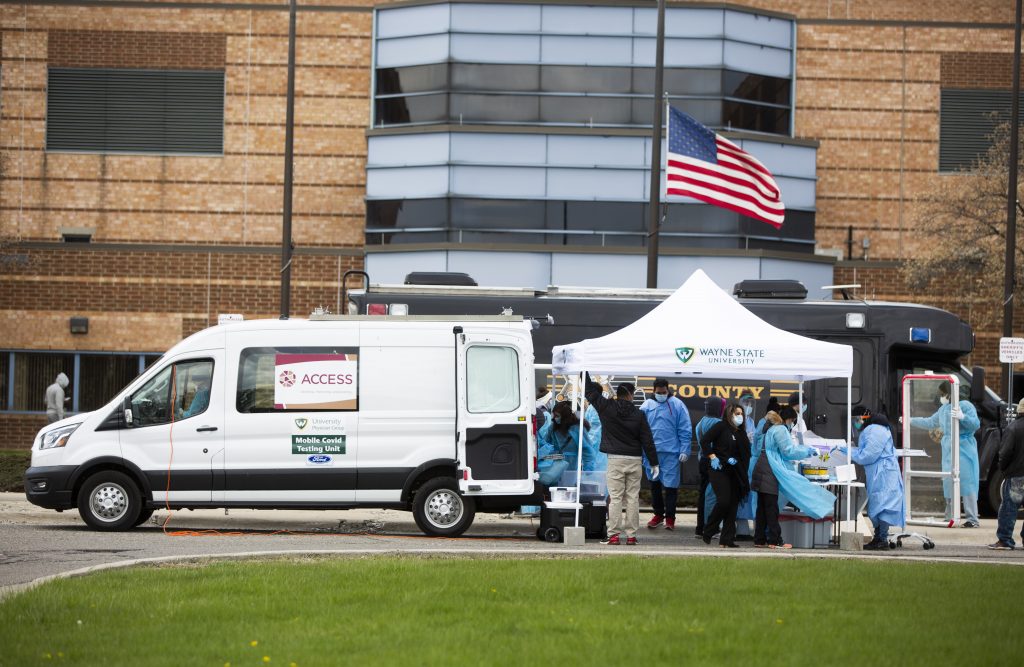
EACH VEHICLE IN THE MOBILE TESTING FLEET WILL BE FULLY-EQUIPPED FOR MOBILE COVID-19 TESTING AND WILL BE CAPABLE OF TESTING AS MANY AS 100 PEOPLE A DAY, WITH TEST RESULTS RETURNED WITHIN 24 TO 36 HOURS. THE MOBILE TESTING PROGRAM LAUNCHED APRIL 13. PHOTO FORD
“We were able to move testing out to the people who needed it, taking it directly into the community,” Welch told Detroitisit.
With weeks of work under its corporate belt, the company now is confident its health and safety playbook will work effectively at its conventional automotive parts and assembly operations.
The process of getting things back to normal – at least as close to normal as possible – won’t be simple, nor come quickly. The vast majority of Ford’s white-collar employee base has been working for home for two months. That’s not likely to change significantly until sometime in June, according to Johnson and other Ford officials. Each unit will need customized solutions, especially when it comes to closely collaborative operations, such as design and engineering.
ONLINE SALES ARE THE ANSWER
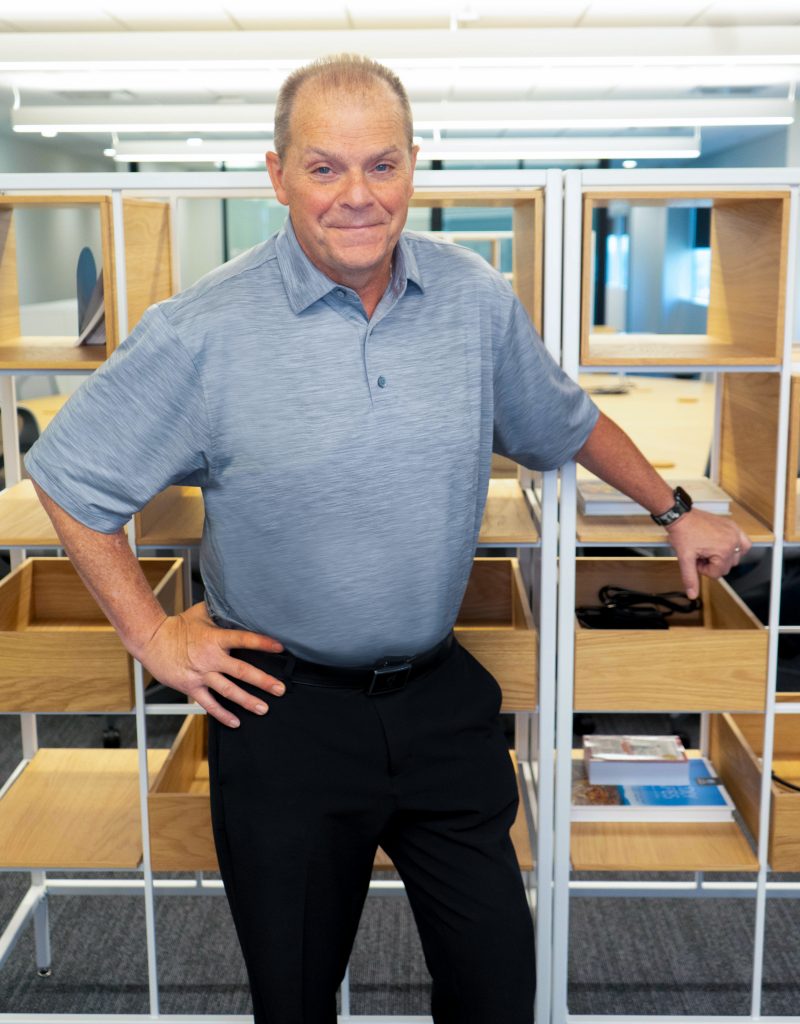
MARK LENEVE, VP OF FORD U.S. MARKETING, SALES AND SERVICE. PHOTO ACRONYM
Then there’s the retail side of the equation. Until recently, a sizable share of the nation’s new car showrooms were shuttered. In some states, including Michigan, business was brought to a near-complete halt. In much of the country, however, dealers got creative, turning to “contactless” alternatives, such as phone and online retailing.
The speed of the shift has been “breathtaking,” COO Farley said during a recent media conference call, and likely to yield a permanent shift in the way many new vehicles are purchased.
“Dealers have really been amping it up” to serve customers, many of whom could not wait indefinitely to buy a new vehicle, Mark LaNeve, Ford U.S. Vice President of Sales, Marketing and Service, told DII.
While online buying has become commonplace for clothing, electronics, and even food, it was being adopted by car dealers only slowly, pre-pandemic. LaNeve said the pace has been “accelerated by two to three years. Nobody was doing complete, end-to-end (online sales) as recently as last December. We’re now up to 20%” of Ford’s U.S. sales.
A number of states still require a “wet,” or manual, signature, including Michigan. But there’s already pressure to change those regulations to acknowledge the way consumers are embracing online auto sales, noted Jim Seavitt, owner and president of Village Ford, in Dearborn.
Seavitt is, admittedly, a believer in the old school mindset. He doesn’t believe car shoppers will stop coming to showrooms like his – though he concedes it’s clicking with Gen-Y and Gen-Z. Even among older buyers, “Many now pick out a car and do the credit app” online, Seavitt said. “But most people still want to come in and drive the vehicle” before they complete the sale.
And for that, Seavitt, like other Ford dealers, is also following a strict playbook. All employees must wear masks. If they show up without one, “they’re sent home,” he stresses. Plexiglas shields have been set up between customers and staff and the entire showroom, including vehicles, is constantly scrubbed down to keep things disinfected.
Seavitt said he’s already noticing an upturn, particularly among lease customers. He’s hoping business will get even closer to normal when Michigan Gov. Gretchen Whitmer ends the current shelter-in-place order in the weeks ahead.
The coronavirus pandemic has taken the country into unknown territory but Ford is betting that by following a cautious and carefully written playbook it can help get the economy and its own business rolling again, even as it works to keep employees, retailers, and customers safe.





